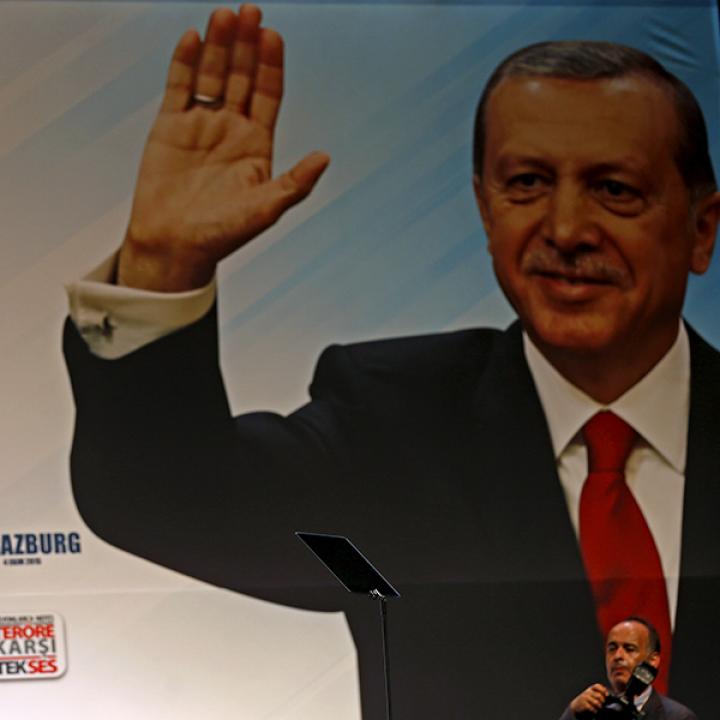
- Policy Analysis
- Articles & Op-Eds
Erdogan’s Russian Victory
Also published in Foreign Affairs

His months-long efforts to neuter the opposition ahead of this weekend’s win suggest that Turkey is shifting closer to a Putin-style autocracy than an illiberal European democracy.
On May 28, Recep Tayyip Erdogan, the Turkish leader “who never loses elections,” won the runoff of Turkey’s presidential poll. Erdogan has been at Turkey’s helm since 2003, first as prime minister and then as president. Together with a sweep in the parliamentary polls, his victory all but anoints him as Turkey’s indisputable sultan, raising far-reaching questions about the sources of his power. In the face of prolonged economic turmoil, a disastrous response to a devastating earthquake, and a newly unified opposition, he nevertheless came out comfortably ahead. Analysts have often compared Erdogan’s approach to power with that of other illiberal leaders in European democracies—including Hungarian Prime Minister Viktor Orban—who have used institutional leverage and populist measures to sustain broad support. Turkey was not a pure autocracy, the theory went, but rather a democracy that had fallen into the hands of an authoritarian leader and was trying to make a comeback. Now, however, Erdogan seems to have arrived at a different inflection point...


